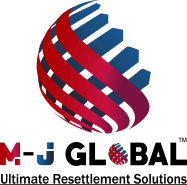An LMIA is a document that an employer in Canada needs to obtain before hiring most types of foreign workers. A positive LMIA will show that there is a need for a foreign worker to fill a given position and that no Canadian worker is available to do the job. Express Entry applicants who possess a job offer that is supported by a positive LMIA have a very high chance of being invited to apply for Canadian permanent residence.
Under current rules:
- Applicants with an LMIA for employment as a senior manager (NOC 00) described under the National Occupational Code, will receive 200 points.
- Applicants with an LMIA for employment under all other occupations described under the National Occupational Code (NOC 0, A and B), will receive 50 points.
- Applicants working in Canada under an employer specific work permit backed by an existing LMIA, or providing significant benefit to Canada (Intra-Company Transferee); NAFTA or other international agreement, under an employer specific work permit and have accumulated at least 1-year of work experience; with a managerial skill level position (NOC OO), will receive 200 points.
- Applicants working in Canada under an employer specific work permit backed by an existing LMIA, or providing significant benefit to Canada (Intra-Company Transferee); NAFTA or other international agreement, under an employer specific work permit and have accumulated at least 1-year of work experience; with a skill level position O, A, B under the National Occupational Code; Skilled Trade (NOC B), will receive 50 points.
It is the employer’s responsibility to apply for an LMIA. If the LMIA is successful, the employer must then inform the applicant and provide the applicant with an LMIA reference number.
An Express Entry applicant who has already received a positive LMIA under a different immigration program will NOT have to acquire a new LMIA if the following conditions are all met:
- The applicant is working in Canada under a temporary work permit.
- The applicant is working for the employer who supported his or her temporary work permit application with an LMIA.
- The employer now wishes to permanently hire the applicant.
If the applicant previously worked in a temporary job that did not require an LMIA, the applicant’s potential employer will have to obtain a positive LMIA in order for the applicant to apply under the Express Entry system.
A job offer under the Federal Skilled Worker Program that is supported by an LMIA must:
- Be permanent
- Be non-seasonal
- Be full time
- Fall under Skill Type 0 (managerial occupations), Skill Level A (professional occupations) or Skill Level B (technical occupations and skilled trades) on the Canadian National Occupational Classification (NOC) list.
A job offer under the Federal Skilled Trades Program that is supported by an LMIA must.
- Be for at least one year of full time work.
- Consist of wages and work conditions that are similar to those offered to Canadians working in the same occupation.
- Fall under Skill Level B (technical occupations and skilled trades) on the Canadian National Occupational Classification (NOC) list and be in one of the eligible occupations under the program.
A job offer under the Canadian Experience Class that is supported by an LMIA must.
- Be permanent
- Be non-seasonal
- Be full time
- Fall under Skill Type 0 (managerial occupations), Skill Level A (professional occupations) or Skill Level B (technical occupations and skilled trades) on the Canadian National Occupational Classification (NOC) list.
How Canada Makes LMIA Application Decisions
The decision on whether or not to issue a positive LMIA is made by Employment and Social Development Canada (ESDC) and then issued to Immigration, Refugees and Citizenship Canada (IRCC).
IRCC then informs the employer of the final LMIA decision. In making an LMIA decision, ESDC considers several factors including:
- The impact of hiring the foreign worker will have on the Canadian labour market.
- The wages and working conditions being offered to the foreign worker.
- The availability of Canadian citizens or permanent residents to do the job in question.
- Whether a transfer of useful knowledge and skills would result from hiring the foreign worker.
- Whether hiring the foreign worker will help create jobs for Canadian citizens and permanent residents.
LMIA Validity and Duration of Employment
After a positive LMIA is issued, a temporary foreign worker has six months to use it to apply for a work permit. No extensions will be given. If the six-month period expires and the foreign worker does not submit a work permit application, a new LMIA application is required.
Important Distinction
The validity of the LMIA is not the same as the duration of employment of the LMIA.
The validity of an LMIA indicates the amount of time that a foreign worker applicant has to use the LMIA and apply for a work permit.
The duration of employment of an LMIA indicates the length of validity of a work permit issued using the LMIA. There are three options relating to the duration of employment for an LMIA:
- Temporary duration to support a work permit application only.
- Permanent duration to support a permanent residence application. Work permits issued under a permanent duration LMIA will be issued for a maximum period of two years, provided the candidate meets the requirements set out in the LMIA. The work permit will not be extended regardless of whether or not a permanent residence application is underway.
- A combination of permanent and temporary duration to support both a permanent residence application and a work permit application.
Kindly contact us here to receive further information.
Interested candidates: Find out whether you qualify to Canada by completing our free on-line evaluation. We will provide you with our evaluation within 1-2 business days.

